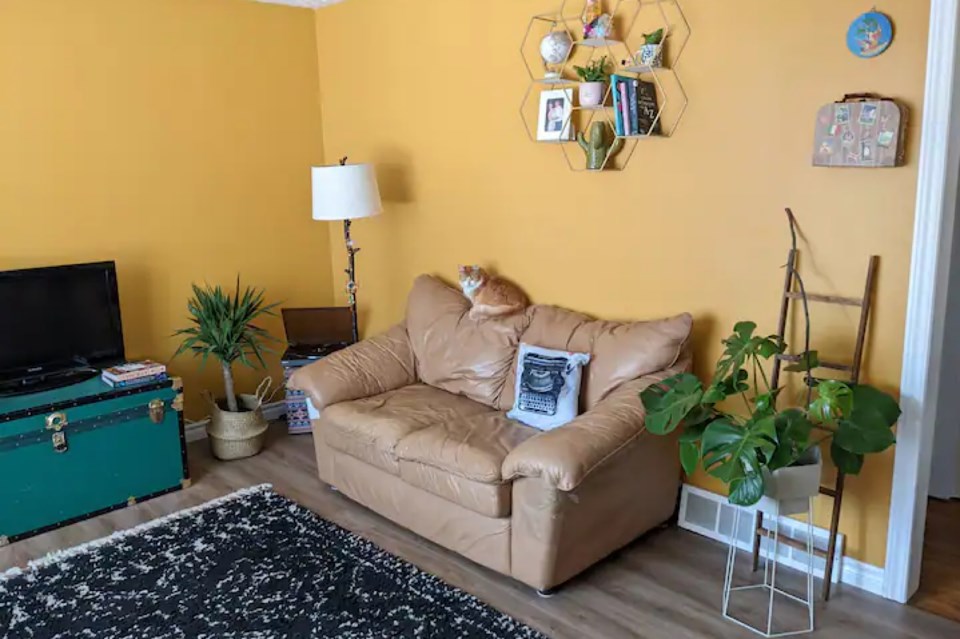Sault Ste. Marie has started regulating short-term accommodations listed on Airbnb and similar web platforms.
A $50 licence is now required, with additional fees for mandatory building and fire reviews or inspections.
City officials had earlier proposed requirements that any short-term rental (STR) located in a residential zone must be the primary residence of the host, and limiting the number of nights an STR could operate in a calendar year.
Neither of those provisions were included in the final draft of new rules approved by city councillors last month.
In a report to Mayor Provenzano and council members, Peter Tonazzo, the city's director of planning, said that was largely due to feedback received from hosts during recent public consultations, and to the small number of complaints received about existing STRs.
"This suggests that for the most part, STRs are operating in a manner that is respectful of the neighbourhood in which they are located," Tonazzo said.
Ward 5 Coun. Corey Gardi, who began the push for city regulation on STRs, tried unsuccessfully to persuade council to require a minimum two-week stay at waterfront STRs.
Tonazzo said "at least half" of Ontario municipalities have regulated STRs and "virtually everybody's starting to look at them now."
In northern Ontario, however, Sault Ste. Marie is an early adopter of STR licensing.
"I believe North Bay has regulations in place," Tonazzo said.
Sudbury is known to be looking at the idea.
Here in the Sault, STR hosts must apply for a licence by March 1, 2023.
Once an STR licence has been granted, hosts must remit the four per cent municipal accomodation tax each month.
The following, as approved by City Council on Sept. 19, are 22 new rules for short-term rental accommodations (STRs):
- STRs are defined as any accommodation that's available for up to 28 consecutive days
- STRs are permitted in all zones that permit a residential dwelling
- only one self-contained STR is permitted per lot except where the property is within a commercial zone that permits dwelling units
- where on the day of the passing of this bylaw, more than one STR existed on one lot, such STRs may continue to lawfully exist
- where multiple units exist within a condominium, written approval from the condominium corporation is required
- recreational vehicles and tents can't be STRs
- STRs must hold a valid licence from the city. Hotels and bed and breakfasts are excluded from this requirement
- license applicants will be required to fill out the application form and pay applicable fees
- licences will be valid for up to three years, after which, renewals will be required
- licences are not transferable
- applicants are responsible for obtaining written approvals from the city's building, fire services, and finance divisions (to confirm that municipal accommodation tax return forms have been completed)
- hosts should clearly post a set of ‘house rules’ for guests
- property boundaries should be clearly communicated, as well as what amenities are available to guests and what amenities are not
- pertinent information in local bylaws should be provided, such as the noise bylaw and animal care and control bylaw
- information should be supplied from the city's ‘Be a Good Neighbour Guide’
- rules should be established about refuse disposal
- hosts should provide their contact information, as well as information to contact the STR platform (ie. Airbnb) to immediate neighbours, so that in the event of an issue, neighbours can contact the host and/or the STR platform
- failure to adhere to the aforementioned requirements may result in the refusal or revocation of a STR licence
- subject to annual reviews, the STR license fee will be $50, or $75 for a late application
- building division file review and/or on-site inspection fees will range from $61 to $126
- the fee for a fire services file review and site inspection will be $134
- additional fees may be applicable where re-inspections are required to address deficiencies
